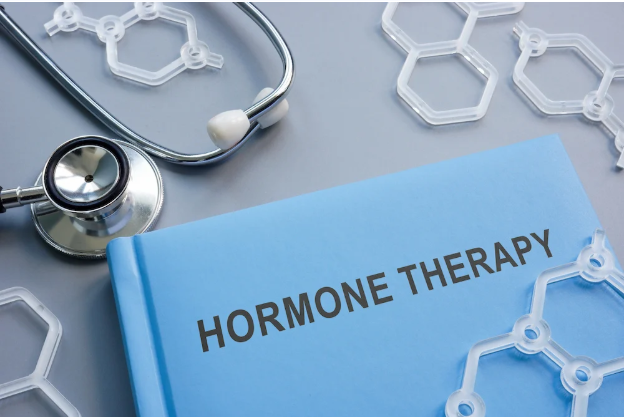Menopause is a natural phase in every woman’s life, marking the end of menstrual cycles and reproductive years. While it is a normal process, many women experience uncomfortable symptoms such as hot flashes, night sweats, mood changes, and sleep disturbances. These symptoms can affect daily life and overall wellness. Fortunately, hormone therapy is one treatment option that can help ease these challenges and support women through menopause with improved comfort and health.
Understanding Menopause and Its Effects
Menopause typically occurs between the ages of 45 and 55 when the ovaries produce fewer hormones, especially estrogen and progesterone. These hormones play a vital role in regulating the menstrual cycle and supporting various bodily functions. When their levels drop, women may experience a range of physical and emotional symptoms. Hot flashes, vaginal dryness, mood swings, and difficulty sleeping are common complaints.
This transition can also affect bone density and heart health due to the decrease in protective estrogen. For many women, managing these changes is essential to maintain quality of life and long-term wellness.
What Is Hormone Therapy?
Hormone therapy, sometimes called hormone replacement therapy, involves the use of medications containing female hormones to replace the ones the body no longer makes after menopause. The main hormones used in hormone therapy are estrogen alone or a combination of estrogen and progesterone.
The goal of hormone therapy is to restore hormone levels to reduce or eliminate menopause symptoms and protect women from certain health risks associated with low hormone levels. This therapy can be tailored to individual needs depending on health history and symptom severity.
How Hormone Therapy Helps Relieve Menopause Symptoms
Hormone therapy can be very effective in reducing the most common and disruptive menopause symptoms. For example, estrogen replacement helps to minimize hot flashes and night sweats by stabilizing the body’s temperature regulation system. Many women report a significant improvement in comfort and sleep quality after starting hormone therapy.
Vaginal dryness, which can cause discomfort and affect intimacy, is also improved by hormone therapy. Estrogen helps maintain the health and elasticity of vaginal tissues, reducing irritation and pain during intercourse.
Mood swings and feelings of anxiety or depression can sometimes be linked to hormonal changes during menopause. Hormone therapy may support emotional balance by stabilizing hormone levels, though it is not a replacement for mental health treatment if needed.
Benefits for Long-Term Wellness
Beyond symptom relief, hormone therapy can provide important benefits for overall health. Estrogen plays a crucial role in maintaining bone density. After menopause, women are at a higher risk of osteoporosis, a condition that weakens bones and increases fracture risk. Hormone therapy can help slow bone loss and reduce this risk.
Heart health is another consideration. Estrogen helps keep blood vessels flexible and supports healthy cholesterol levels. Some studies suggest that hormone therapy, when started early in menopause, may offer some cardiovascular benefits, although this depends on individual health factors.
Important Considerations and Risks
While hormone therapy offers many benefits, it is not suitable for everyone. Women with a history of certain cancers, blood clots, or heart disease may need to avoid hormone therapy or use it cautiously. It is essential to discuss your personal health history and risks with a healthcare provider before starting treatment.
Hormone therapy is usually prescribed at the lowest effective dose for the shortest time needed to manage symptoms. Regular follow-ups with a healthcare provider are important to monitor effects and make any necessary adjustments.
Alternatives and Complementary Approaches
For women who cannot or prefer not to use hormone therapy, other treatments and lifestyle changes may help with menopause symptoms. These include non-hormonal medications, dietary adjustments, exercise, stress management, and natural remedies. Combining these approaches can support wellness during menopause alongside or instead of hormone therapy.
Conclusion
Hormone therapy is a valuable option for many women seeking relief from menopause symptoms and support for overall wellness. By carefully replacing hormones that decline during menopause, this therapy can improve comfort, emotional balance, bone health, and more. It is important to work closely with a healthcare professional to determine if hormone therapy is right for you and to tailor the treatment to your individual needs. With the right care, menopause can be a smoother and healthier transition in life.
